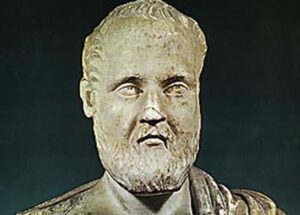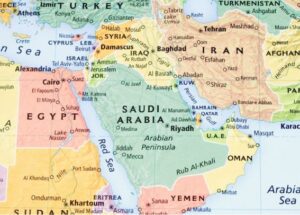
 ΔΕΙΤΕ ΠΡΩΤΟΙ ΟΛΑ ΤΑ ΝΕΑ ΤΟΥ TRIBUNE ΣΤΟ GOOGLE NEWS
ΔΕΙΤΕ ΠΡΩΤΟΙ ΟΛΑ ΤΑ ΝΕΑ ΤΟΥ TRIBUNE ΣΤΟ GOOGLE NEWS 
Ενώ όλοι μας ξέρουμε ότι την Αλεξάνδρεια την έκτισε ο Μέγας Αλέξανδρος, αγνοούμε ότι και το Κάιρο, την πρωτεύουσα της Αιγύπτου την έκτισε ένας άλλος στρατηλάτης, ελληνικής καταγωγής και αυτός, ο Τζάουχαρ αλ Σικίλι (σ.σ. Σικίλι = Σικελιώτης).
Έζησε κατά τον 10ον αι. υπήρξε αρχιστράτηγος των δυνάμεων της δυναστείας των Φατιμιδών και δραστηριοποιήθηκε στην Μέση Ανατολή και την Βόρεια Αφρική, με βάση την πόλη Καϊρουάν, την πρωτεύουσα της δυναστείας.
Είναι ένα ελληνόπουλο αρπαγμένο από ένα νησί του Αιγαίου σε μια εποχή που τα αραβικά πολεμικά πλοία κυριαρχούσαν στην άσπρη θάλασσα και η μεγαλόνησος Κρήτη είχε γίνει Εμιράτο κατακτημένη από τους Άραβες.
Ο πατέρας του εξισλαμίστηκε με τη βία, η οικογένειά του πήγε στη Σικελία, ενώ τον ίδιο τον πήρανε στο Καϊρουάν της Τυνησίας, όπου σπούδασε στο παλάτι μαζί με τον διάδοχο του θρόνου Αλ Μουέζ, με τον οποίο γίνανε αδελφικοί φίλοι.
Διαβάστε τη συνέχεια του άρθρου…
Επίσης:
ΔΙΑΒΑΣΤΕ: Jawahar al-Siqilli, the Italy-born commander who built Cairo, Al-Azhar mosque
ΔΙΑΒΑΣΤΕ:Al-Qaid Jawhar ibn Abdallah (Arabic: جوهر بن عبد الله, romanized: Jawhar ibn ʿAbd Allāh, better known as Jawhar al Siqilli, al-Qaid al-Siqilli (The Sicilian General); died 28 April 992) was a Shia Muslim Fatimid general from the Byzantine (Eastern Roman) Empire who led the conquest of Maghreb, and subsequently the conquest of Egypt, for the 4th Fatimid Imam-Caliph al-Mu’izz li-Din Allah. He served as viceroy of Egypt until al-Mu’izz’s arrival in 973, consolidating Fatimid control over the country and laying the foundations for the city of Cairo. After that, he retired from public life until his death. He is variously known with the nisbas al-Siqilli (Arabic: الصقلي, romanized: al-Ṣiqillī, lit. ’The Sicilian’), al-Saqlabi, al-Rumi (Arabic: الرومي, romanized: al-Rūmī, lit. ’the Roman’); and with the titles al-Katib (Arabic: الكَاتِب, romanized: al-Kātib, lit. ’the Secretary’) and al-Qa’id (Arabic: القائد, romanized: al-Qāʾid, lit. ’the General’).
ΔΙΑΒΑΣΤΕ: Jawhar was born to a Greek-speaking Byzantine woman reduced to slavery just when these turbulent times were starting to settle. At a young age, the slave boy Jawhar was shipped from Sicily to the city of Qayrawan in North Africa. This was when his original Greek name – like his birth date, considered too unimportant to record for posterity – was replaced by the Arabic name Jawhar. He was given to the Caliph Ismail al-Mansur on account of his obvious intelligence and cunning. Evidently this prominent characteristic of Sicilians was already well established in the gene pool! When this Caliph’s son Al-Muizz (953-975) took the reins, Jawhar gained his freedom and became his personal secretary. Before long he became Vizir and the highest-ranking military commander of the Fatimids.
JAWHAR THE SICILIAN : A BYZANTINE GREEK MUSLIM AS A GREAT GENERAL OF ARABS AND FOUNDED THE EGYPTIAN CAPITAL CAIRO – ΤΖΑΦΑΡ Ο ΣΙΚΕΛΟΣ: ΕΝΑΣ ΒΥΖΑΝΤΙΝΟΣ ΕΛΛΗΝΑΣ ΜΟΥΣΟΥΛΜΑΝΟΣ ΠΟΥ ΕΓΙΝΕ ΚΟΡΥΦΑΙΟΣ ΣΤΡΑΤΗΓΟΣ ΤΩΝ ΑΡΑΒΩΝ ΚΑΙ ΙΔΡΥΣΕ ΤΗΝ ΑΙΓΥΠΤΙΑΚΗ ΠΡΩΤΕΥΟΥΣΑ ΚΑΙΡΟ
In 826 Euphemius, the commander of the Byzantine fleet of Sicily, forced a nun to marry him.
Emperor Michael II caught wind of the matter and ordered that General Constantine end the marriage and cut off Euphemius’ nose.
Euphemius rose up, killed Constantine and then occupied Syracuse; he in turn was defeated and driven out to North Africa.
He offered rule of Sicily over to Ziyadat Allah the Aghlabid Emir of Tunisia in return for a place as a general and safety; an Arab army was sent.
The latter agreed to conquer Sicily, promising to give it to Euphemius in exchange for a yearly tribute, and entrusted its conquest to the 70-year-old qadi Asad ibn al-Furat.
The Muslim force counted 10,000 infantry, 700 cavalry and 100 ships, reinforced by Euphemius’ ships and, after the landing at Mazara del Vallo.
A first battle against the loyal Byzantine troops occurred on July 15, 827, near Mazara, resulting in an Aghlabid victory.
Asad subsequently conquered the southern shore of the island and laid siege to Syracuse.
After a year of siege, and an attempted mutiny, his troops were however able to defeat a large army sent from Palermo, also backed by a Venetian fleet led by Doge Giustiniano Participazio.
But when a plague killed many of the Muslim troops, as well as Asad himself, the Muslims retreated to the castle of Mineo.
Later they returned to the offensive, but failed to conquer Castrogiovanni (the modern Enna, where Euphemius died) and retreated back to Mazara.
In 830 they received a strong reinforcement of 30,000 Ifriqiyan and Andalusian troops.
The Iberian Muslims defeated the Byzantine commander Teodotus in July–August of that year, but again a plague forced them to return to Mazara and then to Ifriqiya.
The Ifriqiyan units sent to besiege Palermo managed to capture it after a year long siege in September 831.
Palermo became the Muslim capital of Sicily, renamed al-Madinah («The City»).
The conquest was a see-saw affair; with considerable resistance and many internal struggles, it took over a century for Byzantine Sicily to be conquered.
Syracuse held out for a long time but fell in 878, Taormina fell in 902, and the last Byzantine outpost was taken in 965.
Throughout this reign, continued revolts by Byzantine Sicilians occurred, especially in the east, and part of the lands were even re-occupied before being quashed.
The local population conquered by the Muslims were Greek speaking Christians but there were also a significant number of Jews.
Christians and Jews were tolerated under Muslim rule as dhimmis, but were subject to some restrictions.
The dhimmis were also required to pay the jizya, or poll tax, and the kharaj or land tax, but were exempt from the tax that Muslims had to pay (Zakaat).
Under Arab rule there were different categories of Jizya payers, but their common denominator was the payment of the Jizya as a mark of subjection to Muslim rule in exchange for protection against foreign and internal aggression.
The conquered population could avoid this subservient status by converting to Islam. Whether by honest religious conviction or societal compulsion large numbers of native Sicilians converted to Islam.
However, even after 100 years of Islamic rule, numerous Greek speaking Christian communities prospered, especially in north-eastern Sicily, as dhimmis.
This was largely a result of the Jizya system which allowed co-existence.
This co-existence with the conquered population fell apart after the reconquest of Sicily, particularly following the death of King William II of Sicily in 1189.
Ghilman (ghulām, ghilmān) were slave-soldiers and/or mercenaries in the muslim armies of the Abbasid, Ottoman, and Persian Safavid, Afsharid and Qajar empires.
Ghilman were introduced to the Abbasid Caliphate during the reign of al-Mu’tasim (r. 833–842), who showed them great favor and relied upon them for his personal guard.
The ghilman were slave-soldiers taken as prisoners of war from conquered regions or frontier zones, especially from among the Turkic people of Central Asia and the Caucasian peoples.
They fought in bands, and demanded high pay for their services.
They were opposed by the native Arab population, and riots against the ghilman in Baghdad in 836 forced Mu’tasim to relocate his capital to Samarra.
The ghilman rose rapidly in power and influence, and under the weak rulers that followed Mu’tasim, they became king-makers: they revolted several times during the so-called “Anarchy at Samarra” in the 860s and killed four caliphs.
Eventually, starting with Ahmad ibn Tulun in Egypt, some of them became autonomous rulers and established dynasties of their own, leading to the dissolution of the Abbasid Caliphate by the mid-10th century.
A Ghulam was trained and educated at his master’s expense and could earn his freedom through his dedicated service.
Ghilman were required to marry Turkic slave-women, who were chosen for them by their masters. Some ghilman seem to have lived celibate lives.
The absence of family life and offspring was possibly one of the reasons why ghilman, even when attaining power, generally failed to start dynasties or proclaim their independence.
The only exception to this was the Ghaznavid dynasty of Afghanistan.
The Ottomans and various Iranian dynasties (Safavid, Afsharid, Qajar) drew its peoples generally from the Balkans and the Caucasus. Jawhar (fl. 966–d. 992) was a Fatimid general with Greek origin that led the conquest of North Africa and then of Egypt, founded the city of Cairo and the great al-Azhar Mosque.
A Greek Christian slave from Sicily by origin, he was freed by Al-Mu’izz.
Jawhar was a Sicilian ghulam of Greek ethnicity. His family originated from the Emirate of Sicily (hence the epithet the Sicilian), and came as a slave to North Africa.
He was sent to the Caliph Ismail al-Mansur on account of his intelligence and cunning.
Under his son al-Muizz (953-975) he gained his freedom and became his personal secretary.
Soon he was the vizier and the highest-ranking military commander of the Fatimids.
In this role he resumed the expansion of the Fatimids and, together with the Zirids, conquered Fez in Northern Morocco, and pushed towards the Atlantic.
Only the strongholds of Ceuta and Tangier could be retained by the Umayyads of Córdoba.
After the Western borders had been secured, Jawhar as-Siqilli pushed towards Egypt and occupied the land around the Nile in 969 from the Ikhshidids after a siege at Giza.
The conquest was prepared by a treaty with the Ikhshidid vizier Abu’l-Fadl Ja’far ibn al-Fadl (by which Sunnis would be guaranteed freedom of religion), so the Fatimids encountered little resistance.
Afterwards Jawhar ruled Egypt until 972 as viceroy. In this capacity he founded the city of Cairo in 969 north of Fustat, to serve as the new residence of the Fatimid Caliphs, and the al-Azhar Mosque in 970.
Although Palestine was occupied after the conquest of Egypt, Syria could not be overcome, following a defeat at the hands of the Qarmatians at Damascus. However, when the Qarmatians overran Egypt, Jawhar was able to defeat them north of Cairo on the 22 December 970, although the struggle continued until 974.
To secure the southern border of Egypt a legation was sent to the Christian land of Nubia.
After the establishment of the residence at Cairo, Jawhar fell into disfavour with al-Muizz.
Under his successor al-Aziz (975-996) however, in whose accession to the throne Jawhar played an important role, he was rehabilitated.
He was regent again until 979, but was finally stripped of power after a campaign against Syria was once again defeated near Damascus. Jawhar died on 1 February 992.






























































 ΟΛΕΣ ΟΙ ΕΙΔΗΣΕΙΣ ΣΕ BLOGVIEW
ΟΛΕΣ ΟΙ ΕΙΔΗΣΕΙΣ ΣΕ BLOGVIEW
































